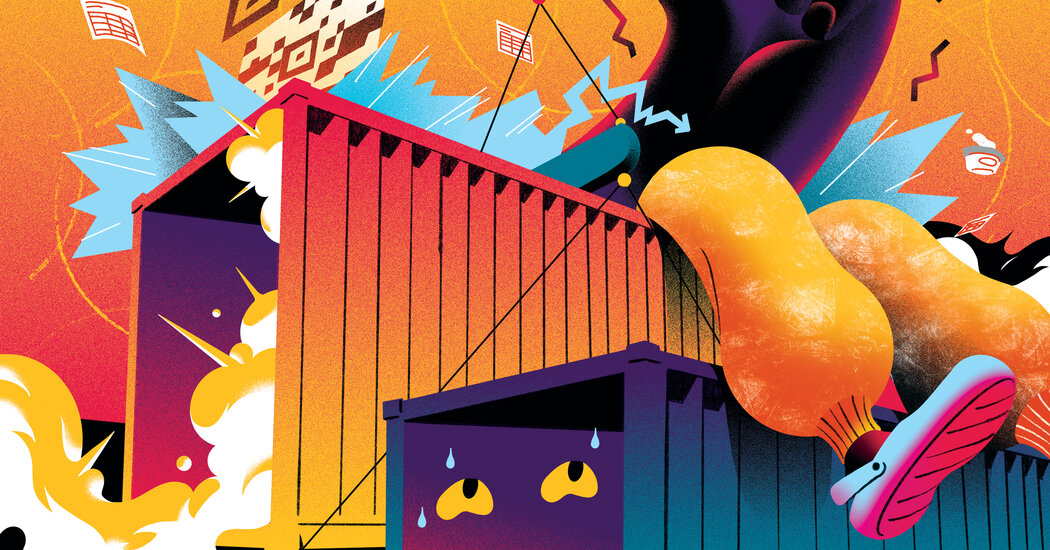
Burned-Out Boomers
This may also have been the year that “OK, Boomer” ceded the floor to “You OK, Boomer?”
A recent Federal Reserve survey of business contacts found that several “noted that baby boomers were leaving jobs and selling businesses to retire early — a trend that was due (1957 marked the peak year for births among baby boomers; those babies turn 65 next year) but has accelerated because of pandemic burnout.”
That shows up in the data. People over the age of 45 have been slower to return to the job market since the start of the pandemic. That group includes members of Generation X, which ranges in age from 41 to 56, and baby boomers, who are roughly 57 to 75. It’s not clear if the apparent rush toward early retirement is going to stick: People may go back once the health scare of the pandemic is behind us, or if stocks return to less buoyant valuations, reducing the value of retirement portfolios.
What happens next with the middle-age-and-up work force will be pivotal to the future of the labor market. If older workers stay out, America’s labor force participation rate — and the pool of workers available to employers — may remain depressed compared with levels that prevailed before the pandemic. That will be bad news for employers, who are increasingly desperate to hire.
Generational Warfare, Skinny Jean Edition
Don’t shed all of your tears for the baby boomers, because millennials also had a tough time in 2021. They divided the year between reminding the internet that they are graying, keeping Botox boutiques in business, and feeling aghast as Generation Z, their successors, accused them of being old. A generation that made the poorly informed decision to recycle the low-rise trend also had the gall to claim that side parts make people look aged and skinny jeans are out.
Whether their elders are ready for it or not, the reality is that Gen Z, the group born from 1997 to 2012, began to enter adulthood and the labor market in full force during the pandemic. It is a comparatively small generation, but its members could shake things up. They are fully digital natives and have different attitudes toward, and expectations of, work life from those of their older counterparts.
If office workers ever actually meet their new colleagues, things could get interesting.
Everyone Hates ‘Hard Pants’
Speaking of the office, this year put the initials “R.T.O.” firmly into the professional lexicon. Return-to-office planning was repeatedly upended by rolling waves of infection, but that didn’t stop cries of outrage. Many professionals began to question the utility of high heels and slacks — known derisively as “hard pants” — as opposed to their far more beloved and couch-friendly “soft pant” alternative.
Whether the future of work-wear will involve more elastic waistbands remains an open question, but it is increasingly clear that America is unlikely to return to many of its old workday habits. Surveys of workers suggest that many did not miss the office, and employers are increasingly turning to hybrid work models and location flexibility, in part to avoid fueling further resignations.



